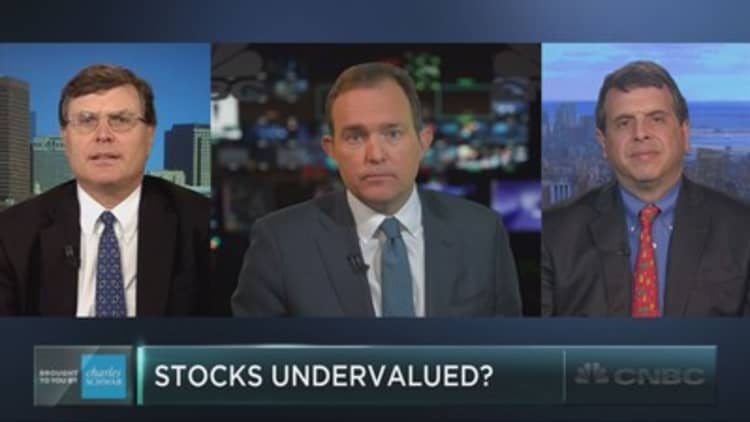
It has been widely pointed out that judging by most valuation metrics, the broad market looks fully to overly valued.
But those same measures can actually show that stocks have room to run — so long as certain tweaks are made.
According to S&P Capital IQ data, the is trading at 18.4 times consensus estimates of next year's earnings, which is about the highest that widely watched metric has been in more than 10 years.
Based on this number, "the market feels basically fully valued," Nick Colas, chief market strategist at Convergex, said Friday on CNBC's "Trading Nation."
In order to draw the conclusion that stocks as a whole present a bargain, one would have to make some pretty aggressive assumptions.
"To understand the upside case, you have to look at not the average estimates, but at the highest estimates" among analysts, Colas said. "And if you look at the highest estimates, then you get to a multiple of more like 15 times next year's earnings, and roughly 16 percent earnings growth. That's the kind of estimate that makes for an undervalued market."
To be sure, valuations are famously not an indicator of short- or even medium-term market moves. But richly valued markets generally are thought to have less potential long-term upside than cheap ones.
Another caveat is that there are different ways of building valuation models. Based on the low level of current interest rates, for instance, stock may not be overvalued at all.
Still, what Colas' work shows is that in order to make the case for buying stocks based on the most commonly cited correlation metric, one has to believe that earnings will truly shoot skyward.
Matt Maley, equity strategist with Miller Tabak, sees such a scenario as far-fetched.
"When valuations get as stretched as they are now, we never grow into those valuations; prices have to come down," Maley said Friday on "Trading Nation."
On top of that, rising interest rates and potential policy uncertainty make blowout earnings especially unlikely, Maley added.
In other words, stock investors better get comfortable with higher valuations — or take a second look at their investing strategy.






